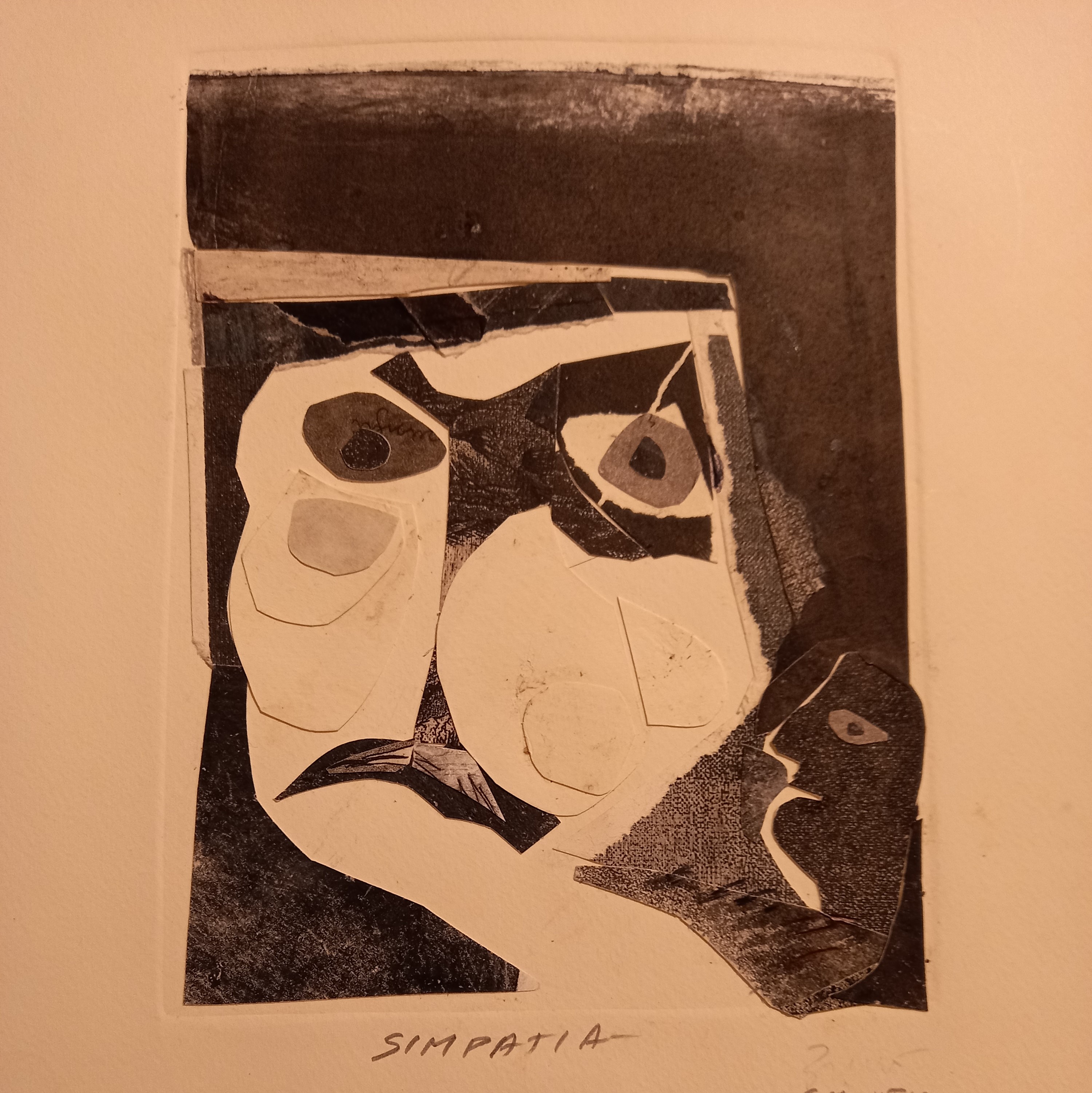bricks.

‘Liking’, by F. Duranti[1] - collage. It takes work to recognize as ‘cultural’ the irreducibility of unnecessary stratifications[2], capable however to keep a Subject isolated. // Drawn from the exhibition ‘Glossario clinico di Psichiatria per Immagini’ – Pavia, ‘Hangart Studio’ October 8 – 23, 2022.
To benefit from one’s calling [3] / 27.
With a work that now spontaneously stratifies good mortar among selected bricks in front of the cruel demand[4], that is finally recognized, and alienated.
Marina Bilotta Membretti / Cernusco sul Naviglio – November 12, 2023
[1] The biographical notes are drawn from the brochure available at the 2022 exhibition in Pavia// Franco Duranti has an academic background in Fine Arts and in Conservatory of Music in Milan : his own work merges with an activity as an Art therapist in hospital (Milan, Pavia, Legnano). In 1988 he begins a long quest to give life to a ‘ Clinical Glossary of Psychiatry for Imaging’ – these are notebooks of working – ended only in 2021 and starting from a field observation of patients attending the Art Laboratories inside the Health Units : it is a study aimed at distress and emotional sides, a trace to observe what cannot be observed with a strongly calligraphic graphic language, as supported by an active career as engraver.
[2] “In mental illness, healing follows the principle of imputability, not of causality… It is the principle of satisfaction, or of benefit, or of ‘pleasure’ that has been mislaid… The principle of pleasure is a case of the principle of imputability. Here is why between an instance of cure - when it is - and the desire for healing, there is no coincidence when starting the cure. Speaking of imputability is to say that a cure is the reopening of the file of a bad trial: it is an appeals process.”, cited from ‘La Città dei malati’, Giacomo B. Contri with Maria Antonietta Aliverti, Raffaella Colombo, Maria Delia Contri, Marina Massimi, Giorgio Moretti – SIC Edizioni (1994) pg. 10, ‘Imputazione, giudizio, soggetto’.
[3] www.tutorsalus.net/index.php/en/pensare-da-partner-2/358-psychoanalyst-and-profession-1
[4] “Freud was keen to point out that his ‘Es’ is just that of the common expression ‘es ist stärke als ich’, i.e. ‘ that beats me’”, cited from ‘Il pensiero di natura. Dalla psicoanalisi al pensiero giuridico’, Giacomo B. Contri SIC Edizioni (1998), pg.121 - ‘La Carta o Enciclopedia’.